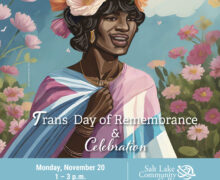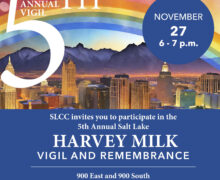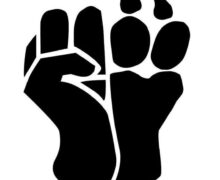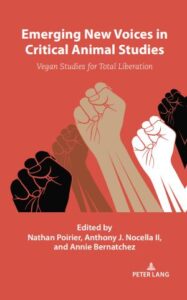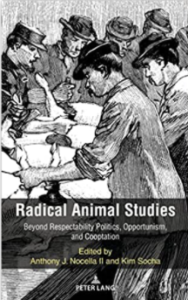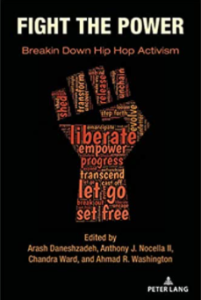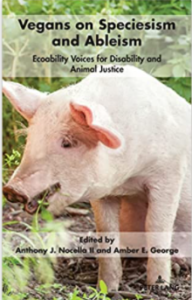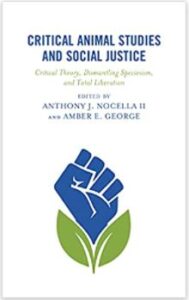November 5, 2021 – 21st Annual North American Conference for Critical Animal Studies
November 5, 2021
21st Annual North American Conference for Critical Animal Studies
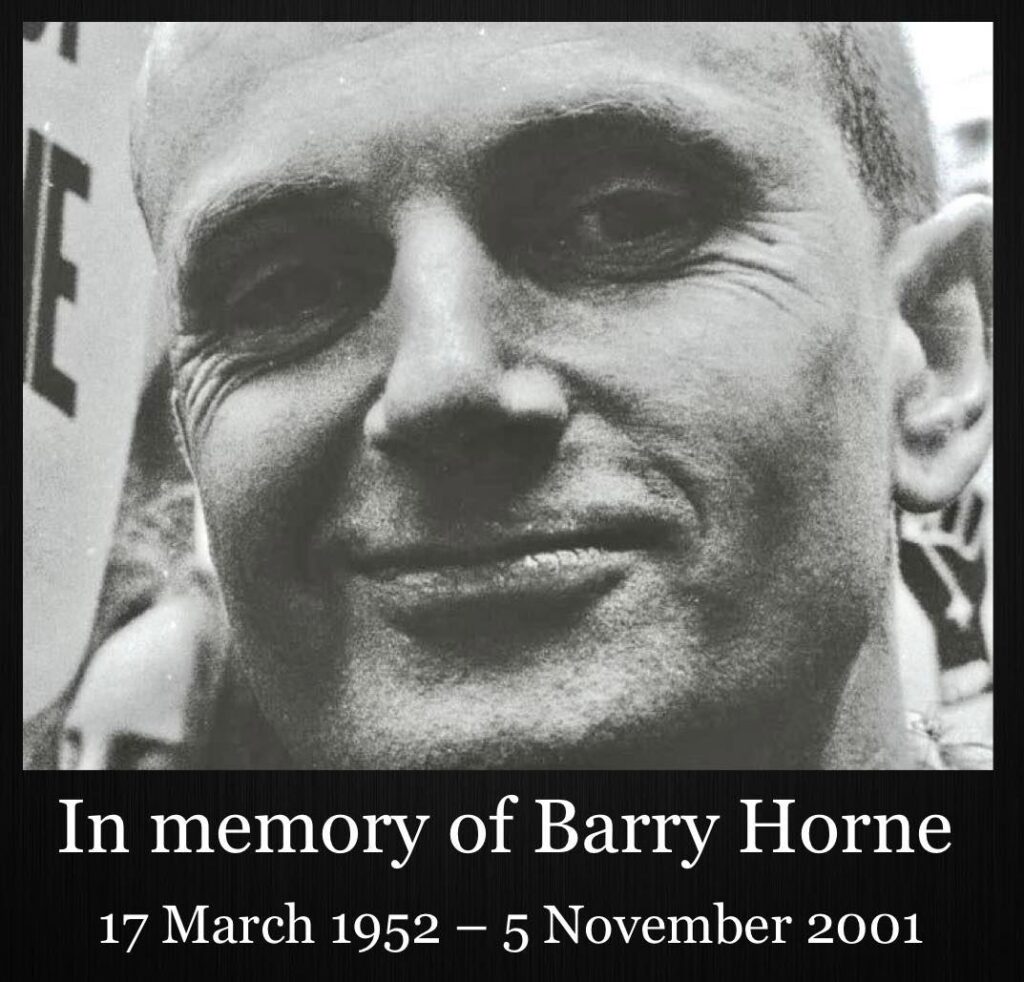
Register in advance for this webinar:
https://slcc-edu.zoom.us/webinar/register/WN_AlIk9pxeR0aM2bCS-_Mk4g
INTERESTED THEMES:
Animal Liberationists for Black Lives Matter
Stories from 90s Animal Liberation Activists
Eco-Ability Movement Voices
Fighting Political and Corporate Repression
Being a Scholar-Activist
Decolonizing Movements and Education
Hip Hoppin Movements
Total Liberation
Anti-Capitalism
Racial Justice
Healing Justice
Social Justice
Disability Justice
Youth Justice
Critical Eco-Feminism
LGBT+ Justice
All Speakers have 20 minutes to present with 10 minutes of questions and comments.
SUBMIT
All submissions for the conference need to hold to the mission and principles of CAS and ICAS and to submit in a Word Doc. as an attachment in an E-mail with the following information:
1. Title of Presentation
2. Biography third person 80 to 100 words one paragraph
3. Description/Abstract of the presentation around 200 words third person and one paragraph
SEND SUBMISSION TO:
Anthony J. Nocella II, Ph.D., Chairperson
nocellat@yahoo.com
Deadline is: 24, 2021
Free and Open to the Public.
Via Zoom Webinar
SCHEDULE
(time is based on Mountain USA)
10:00am to 10:20am – Remembering Barry Horne, The Man Who Gave His Life for Animal Liberation
Presenter – Ronnie Lee
Abstract: Twenty years ago on the date of this conference, Barry Horne died as a result of hunger strikes he had been carrying out to force the UK government to take action against animal experimentation. The hunger strikes took place while Barry was serving an 18-year sentence for planting incendiary devices in stores that sold fur coats and leather products or were connected with animal experimentation. It was the longest sentence handed down to any animal rights activist by a British court. Ronnie will talk about Barry’s life and death as a campaigner for animal liberation and how his courage and sacrifice should inspire us to fight even harder to free other animals from human tyranny.
Biography: Ronnie Lee has been a vegan and campaigner for animal liberation for almost 50 years. In the early 1970s he was one of the founders of the Animal Liberation Front and served three prison sentences (a total of about 9 years in prison) for animal liberation activism. Since his last release from prison, in 1992, he has been involved in various animal protection campaigns and political activities. His main focus is now on vegan outreach and on the creation of a network of local activist groups to spread the vegan message.
10:20am to 10:30am – Q&A
10:30am to 10:50am – Total Liberation and Radical Animal Studies from an Anarchist Criminological and Pedagogical Perspective
Presenter – Anthony J. Nocella II
Abstract: This intersectional and interdisciplinary presentation will discuss the tactics, definition, and strategies of total liberation. Next, this presentation will discuss the development and growth of critical animal studies and how it is different theoretically and practically from human-animal studies and animal studies. Radical animal studies, influenced by social movement theory and critical theory, founded out of critical animal studies, will be defined and explained to the audience. Finally, the presentation will talk about challenging a punitive justice system, shaming, cancel culture, and the value of transformative justice from an anarchist criminological and pedagogical perspective.
Biography: Dr. Anthony J. Nocella II, an international award-winning author, professor, and community organizer, is an Assistant Professor in the Department of Criminal Justice and Criminology in the Institute of Public Safety at Salt Lake Community College. He is the editor of the Peace Studies Journal, Transformative Justice Journal, and co-editor of five book series including Critical Animal Studies and Theory with Lexington Books and Hip Hop Studies and Activism with Peter Lang Publishing. He has published over fifty book chapters or articles and forty books. Nocella is the National Coordinator of Save the Kids, Executive Director of the Institute for Critical Animal Studies, Director of the Academy for Peace Education, and acquisitions editor of Arissa Media Group. He has co-founded the fields of academic repression, total liberation, critical animal studies, ecoability, radical animal studies, disability pedagogy, Hip Hop criminology, and lowrider studies.
10:50am to 11:00am – Q&A
11:00am to 11:20am – Corvids, Crows, and Covid: Healing, Transformative, Abolitionist Response to late COVID Capitalism
Presenter – Lucas Alan Dietsche
Abstract: There is much research regarding mythology, crow cognizant socialization, and contributions to symbiotic urbanography, and rural biosphere studies. All legends, indigenous, religious, myths, storytelling have the crow juxtaposed as either the harbinger of knowledge and wisdom or the soothsayer of death, misery, and impending doom. Crows can sense physical despair in other crows within their murders and support younger crows outside of family units, if need be. There is extensive research presenting crows being able to collectively be intrinsic for other crows whether for physical trauma, mood, decrease in populations, as well as adaptation to climate conditions. Crows work collectively and discerning regarding which partners to work with and cautious regarding coalitions and alliances with other family murders. The combination of increased intelligence lets corvids adapt to every changing situation. Crows and ravens are often seen as very something to emulate class consciousness as serving the people. Whether humans can adapt-transform changing systematic structures during and post-Covid-19 pandemic, create new norms that deviate from our held commonalities, can be learned by studying and appreciating crows. Like the myths and legends and the physical connection to natural world, humans can learn, promote, and internalize crow wisdom and cohesiveness. Comparative study to show data and research literature on how crows operate in times of climatic struggle, food shortages, and habit interruption. This research contends to be a template for further research regarding crow perception of increasing adaptation in late capitalist society during the Covid-19, and human ability to keep in close quarters crow symbiosis.
Biography: Lucas Alan Dietsche is the Editor in Chief of Transformative Justice Journal, graduate of Criminology/Criminal Justice, and member of the Division of Convict Criminology. He is also Co-Facilitator of the National U.S. Prisoner Reintegration Conference. He is an adjunct professor for print-based correspondence prison courses at Adams State University. He has many articles published on Poetic Inquiry Criminology and carceral feminism. Currently living in Mankato, Minnesota he has published works such as “Word Out”, “Elba”, “Commies and Zombies”, “Since the Oregon Trail”, “Moods are Like Wisconsin Weather”, and “Kapshida.” He has published poetry in Transformative Justice Journal, Ariel Anthology, Poetry Behind the Walls, and Nemadji Review. He has a Patreon/blog called “Pilot of Oumuamua”.
11:20am to 11:30am – Q&A
11:30am to 11:50am – Animals in His-Story: How Animal Exploitation Shaped the Oppression of Men
Presenter – Laura Schleifer
Abstract: “Feminism is for everybody,” declared feminist scholar bell hooks, and in recent years that attitude has become increasingly pervasive as our collective understanding of feminism has grown to examine how patriarchy oppresses not just women but also other marginalized genders and even, ultimately, men themselves. Additionally, awareness of how other systems of oppression—racism, ableism, ageism, etc.–intersect with and reinforce the oppression of women and other marginalized genders is increasing. With the advent of eco-feminism, the human oppression of non-human animals has also been examined within the context of how that relates to the male oppression of women, as well as how patriarchy relates to the oppression of non-human animals. Far less recognized, however, is the role that the human oppression of other animals has played in shaping and reinforcing the ways that men themselves are oppressed under patriarchy. From providing the foundation for toxic masculinity traits through hunting (after all, it is called ‘stalking’ and ‘predatory behavior’ for a reason) and herding to providing the template for how colonized men would be treated by invading colonizer societies based on how those societies controlled male animals through castration, torturing them to “break” their spirits and thus be able to control and dominate them, killing all the males to better exert social control of a herd, etc., the roots of men’s suffering and oppression under patriarchy are just as tied up with the oppression of other animals as the oppression of women or any other gender is.
Biography: Laura Schleifer is a lifelong ‘artivist’, or artist-activist. An NYU Tisch graduate (BFA, Drama), she’s toured the Middle East, performing for Palestinian and Iraqi refugee children with the Boomchucka theater/circus troupe, taught in China, Nicaragua, and at Wesleyan University’s Green Street Arts Center, performed off-Broadway, and arts-mentored homeless/targeted youth. Her screenplay, The Feral Child, was a Sundance Screenwriter’s Lab finalist. Her essays appear in The Leftist Review, Project Intersect, Forca Vegan, The New Engagement, Kropotkin Now! Life, Freedom and Ethics, published by Black Rose Books, and the upcoming Neoliberal Schooling of Selfishness and Exploitation: Rubricization and Corporatization of Higher Education, published by Peter Lang Publishing, and Fever Spores; William S. Burroughs and Queer Letters, published by Rebel Satori Press. Currently, she’s writing a book, Liberating Veganism, for Vegan Publishers. Laura is also the Institute for Critical Animal Studies Total Liberation Campaign Director, a Promoting Enduring Peace Directors’ Board member, and co-founder of Plant the Land (www.planttheland.org) , a vegan food justice/community projects team in Gaza.
11:50am to 12:00pm – Q&A
12:00pm to 12:20pm – How Can We End Animal Testing and Better Human Health?
Presenter – Aysha Akhtar, MD, MPH, Co-founder and CEO, Center for Contemporary Sciences
Abstract: Animal experimentation causes harm to more than 200 million animals globally each year. The U.S. is one of the top countries that performs animal testing, with more than 100 million per year. Yet the majority of animals used in the U.S. are provided no federal protection. Despite the immense suffering caused by animal experimentation, it is defended by arguments that it is reliable, that animals provide sufficiently good models of human biology and diseases, and that consequently its use provides major human health benefits. But a growing body of scientific literature raises important concerns about its reliability and predictive value for human outcomes and for understanding human physiology. The good news is that a momentum is building that will lead to a revolution in biomedical research that will replace animal testing and benefit humans. This presentation will provide a brief overview of the scientific evidence for their unreliability.
Biography: Aysha Akhtar, M.D., M.P.H., is the Co-founder, President, and CEO of the Center for Contemporary Sciences, which is pioneering the transition to replace the use of animals in experimentation with superior human-based testing methods. A U.S veteran, she is a double-board certified neurologist and preventive medicine specialist, with a background in public health. Previously she served as Deputy Director of the U.S. Army Traumatic Brain Injury Program developing the Army’s brain injury prevention and treatment strategies for soldiers. As a Commander in the U.S. Public Health Service Commissioned Corps, Dr. Akhtar frequently deployed to assist with national public health emergencies. For a decade, Aysha was a Medical Officer at the Food and Drug Administration, most recently in the Office of Counterterrorism and Emerging Threats, implementing studies on vaccine effectiveness and safety and using her Top-Secret Security Clearance to develop national preparedness strategies for public health threats. Aysha is a Fellow of the Oxford Centre for Animal Ethics. She is the author of the two books, Our Symphony With Animals. On Health, Empathy and Our Shared Destinies and Animals and Public Health, which argues for the need for health institutions to include animals as part of the “public” in public health. Aysha is a TEDx speaker.
12:20pm to 12:30pm – Q&A
12:30pm to 12:50pm – Ableism, Speciesism, and Sexism in the Rudolph the Red-Nosed Reindeer Narrative
Presenter – Amber E. George
Biography: Amber E. George, Ph.D., is Assistant Professor of diversity, equity, and inclusion at Galen College. Dr. George has presented her work at several Disability Studies and Media Studies conferences, is a member of the Eco-ability Collective, the Conference Awards Chair of the Central New York Peace Studies Consortium, and the Director of Finance for the Institute for Critical Animal Studies (ICAS). She has edited several books involving media, critical animal studies, and disability studies. George is the managing editor of the Journal for Critical Animal Studies (JCAS).
Abstract: Rudolph the Red-Nosed Reindeer (1939) is one of the most beloved stories for those who celebrate Christmas. The story depicts the experiences of a young male reindeer who is born with an unusual red nose and is labeled a ‘misfit’ because of his physiological difference from other reindeer. Some theorists (Gately & Hammer, 2008) have argued that Rudolph’s nose characterizes him as having a disability and what Erving Goffman (1963) might consider a “spoiled” or “stigmatized” identity. While it is true that Rudolph endures what many stigmatized individuals face, such as passing, overcoming, and objectification due to having a red nose, this analysis discusses why audiences should not accept every thoughtlessly conceptualized version of disability. This chapter also explores Rudolph’s status as Santa’s domesticated “working” pet and how reindeer in the story are arranged according to patriarchal and speciesist themes. As an enduring cinema classic, the media representations within this film represent critical cultural discourse about disability, animality, and gender that requires serious analysis.
12:50pm to 1:00pm – Q&A
1:00pm to 1:20pm – The Importance of Brick and Mortar Community Spaces in Social Justice Movements
Presenter – Andrew Earley
Abstract: I’ll talk about the history of organizing/community spaces, different types of spaces, how each has helped shape our local community, and other communities. Talk about some of the difficulties, addressing the myth of the hypocrisy of capitalist businesses to maintain spaces, finding funding for spaces.
Biography: Andrew grew up in Utah and has been vegan for about 15 years. He was exposed to the animal rights movement thru salt lake’s hardcore and punk scene, becoming active in local protests and anarchist community organizing efforts. Andrew currently runs a Vegan restaurant and music venue/community space called Mark of the Beastro/The Beehive in Salt Lake City.
1:20pm to 1:30pm – Q&A
1:30pm to 1:50pm – Activism Related to Spiritual and Emotional Bypassing
Presenter – Ash Merchant
Abstract: People are beginning to see the importance of taking action in their personal lives to become more healthy individuals in a world demanding attention. To be a great activist, and not burn out, also requires the same degree of self-care. The wellness industry has been continuing to expand and grow over the last few years. People are looking for healing outside of the mainstream mental health system. This has led many people into spirituality, coaching, and meditation communities. The surge in the wellness industry has also created a surge in spiritual and emotional bypassing within the context of activism and social justice topics. Many people believe they can mediate their way into a better society; that solely prayer, God, or phrases like “love and light” will heal the world. This takes the individual and community responsibility away from the person without any real action steps – unable to acknowledge harsh realities that can change.How do we take real action while simultaneously taking care of ourselves? This is not to say that meditation practices are not helpful in becoming better, more emotionally regulated individuals – but we need to acknowledge why so many people are experiencing trauma – and in need of healing. We need to drop toxic and shallow phrases devoid of socioeconomic barriers like, “your thoughts create your own reality.” How can we help people who are experiencing cognitive dissonance expand their perspectives without shaming them into action?
Biography: Ashley Merchant grew up in Atlanta, Georgia. She also has lived in Louisiana, Hawaii, Colorado, Oregon, and currently resides in Asheville, NC. She graduated from the University of Denver with a Masters in Social Work studying human-animal connection and sustainability in Kenya, and in South Africa working with at-risk youth in wilderness therapy. She has worked in the non-profit field, and was on the Southwest Colorado NAMI board for five years. She has worked in the mental health field for over ten years, including in-patient units, an ER crisis team, and in hospice. Ashley is passionate about animal and environmental rights, as well as addressing socio-economic injustices. During her free time she enjoys the outdoors, writing, health, traveling, photography, gardening, and spending time with her two rescue dogs.
1:50pm to 2:00pm – Q&A
2:00pm to 2:20pm – From Prison to the Outdoors
Presenter – Ken Tay Lee
Abstract: Ken-Tay Lee is presenting on eating healthy and how to stay healthy in while in prison and jail.
Biography: Ken-Tay Lee is a full-time student at Salt Lake Community College. He works as one of the first interns for the Chief Diversity Officer at Salt Lake Community, focusing on justice, equity, diversity, and inclusion. Ken-Tay Lee is a member of Save the Kids and Utah Reintegration Project.
2:20pm to 2:30pm – Q&A
2:30pm to 2:50pm – Constitutionalization of the Interests of the Non-Human Animals in the Constituent Process of Chile as a Social Justice Movement
Presenter – Ariadna G. Beroiz Díaz
Abstract: On October 25, 2020, in Chile, after a political process that was a turning point in the history of the country, a referendum was held to initiate a constituent process, in a historic day marked by a massive turnout at the polls (50.9% participation), despite the health crisis caused by the COVID-19 pandemic. The “I approve” option for a new Constitution obtained 78.27% of the votes, while the “Constitutional Convention” option, as the body in charge of drafting it, was the winner with 78.99% of the votes. The drafting body chosen for this task was the Constitutional Convention, which must be composed of 155 representatives, half men and half women, through direct election, without the participation of representatives of Congress. Such constituents will have a term of 12 months to draft a text for the new Constitution. After that, a “ratifying or exit” referendum will be held again, in which Chilean men and women will choose whether to approve or reject the proposed new constitution. In the light of the above, various social groups have raised their demands and initiated their own discussion processes regarding those points that are considered relevant to be included in the new constitution, such as the right to health, housing, environment, among many others. In this way, some organizations dedicated to the defense of the rights of other animals have raised proposals to include non-human animals in the new constitution that would emerge from this eventual constituent process. All the proposals, although they have certain points of variation, share the discourse that the interests of all sentient beings, and not only those of human beings, needs constitutional reinforcement. By now, this process has shown us that it is feasible to consider that animal rights are no longer a marginal concern in Chile, but rather a highly legitimate and pressing social justice movement that will be on the current and future political agenda in Chile.
Biography: Ariadna G. Beroiz Díaz is a lawyer from the Law School of the University of Chile. Also, she is currently a member of “Instituto Latinoamericano de Estudios Críticos Animales” (ILECA) and Fundación Derecho y Defensa Animal. In addition, she is the representative of animal protection institutions in the Chilean Animal Bioethics Committee created by Chilean Law 20.380 for the period 2021-2023. She was an assistant at the Public Law Department of the Law School of the Universidad de Chile, specifically in Administrative Law and Constitutional Law. Recently, she completed a Diploma Program in Administrative Law Penalties at the Pontifica Universidad Católica de Valparaíso. Now, she is currently investigating the social and legal reception of the discourse of constitutionalization of the protection of non-human animals in the framework of the constituent process of Chile in 2021.
2:50pm to 3:00pm – Q&A
3:00pm to 3:20pm – Documenting and exposing farm animal exploitation in Canada and the political attempt at silencing activists
Presenter – Shay Lee
Abstract: Animal Rights Activists have been using direct action and civil disobedience in the form of farm occupations as a way to shed light on animal exploitation by documenting and demanding media access into farms and slaughterhouses. When civil disobedience comes into play so does the persecution of non-violent animal rights activists. From farm investigations to open rescues, mass direct actions to criminal trials, Shay will speak on her own experiences of documenting animal abuse, as well as talk about major actions that have happened in Canada and their impacts.
Biography: Shay is a Canadian Animal Rights Activist, animal photojournalist and farm investigator who is known for her heartbreaking photos exposing the horrific things that animals are subjected to. She has been charged twice for break and enter after publicly exposing a pig farm in Quebec and North America’s largest duck farm in Ontario, as well as charged for theft for liberating 26 ducks from that same farm. Her charges for #DuckTrial were eventually dropped, and her criminal trial for #PigTrial4 was just held in October and lasted 7 days. The judges verdict won’t be announced until February 2022. Shay partakes in open rescue and has so far liberated over 100 lives from animal farms. After her first broad daylight open rescue of 26 rabbits from a meat farm in 2017 Shay dedicated her life to liberating animals and exposing animal AG with her photography. Shay is featuring in an upcoming AR documentary titled “They Call Us Criminals” (theycalluscriminals.com)
3:20pm to 3:30pm – Q&A
3:30pm to 3:50pm – Interwoven Activism: America’s Wild Horses, Queering, Healing Justice, and a Meditation
Presenter – Elisa Stone
Abstract: Queer is an identity. Queering is an action. Originally the method of queering centered on gender and sexuality, but has metamorphosed into an umbrella term for addressing identity plus a range of systems of oppression and identity politics, challenging binaries. In the context of queer theory, queering is something we do, rather than something we are (or are not). Using a narrative approach to her interwoven experience of 19 years of veganism + animal activism, as an LGBTQ+ activist, volunteer, and Queer Studies professor, Elisa Stone will ground her recent experiences fighting for America’s Wild Horses to highlight ways that disparate movements falsely divide us from one another. Queering activism invites a liminal space where we can navigate activist intersections with an awareness that varying beliefs, values, and practices are a foundation for creating an integrated communal approach to greater justice for non-human animals as well as healing justice for humans. Elisa will conclude her presentation by leading an optional meditation for the horses she has come to know and love, inviting an energetic healing to be sent to all animals and to Gaia.
Biography: Elisa Stone is a Board Member of Wild Heart Sanctuary for rescued mustangs in Park City, Utah. An animal activist who has protested at locations ranging from the Lagoon Zoo to the Utah State Capitol, Elisa has also lectured to over 3,500 high school and middle school students on the benefits of a plant-based diet to our health, animals, and the environment as a representative of the international Ethical Choices Program. She included in her presentations the plight of America’s wild horses and burros. Having been vegan for 19 years, Elisa is a Master Certified Vegan Lifestyle Coach and Educator with Main Street Vegan Academy in NYC; she is also certified in Plant-Based Nutrition with Cornell University. Elisa is a long-time volunteer who has spent many hours at farm animal sanctuaries various animal shelters. A tenured professor at Salt Lake Community College, Elisa teaches Queer Studies, is an Advisor to the Queer Student Association, is a Safe Zone Trainer, and has Co-Chaired the LGBTQ+ Steering Committee that helped SLCC start its Gender & Sexuality Student Resource Center. Elisa is a liaison with the Utah Pride Center and is currently helping them plan their upcoming genderevolution Conference. She got her start as an LGBTQ+ activist protesting with Soul Force Freedom Riders at BYU Idaho in her hometown of Rexburg, Idaho. Elisa is a trained facilitator with the Center for Authentic Leadership and Mindfulness (CALM), and regularly co-facilitates mindfulness retreats for Salt Lake Community College.
3:50pm to 4:00pm – Q&A


